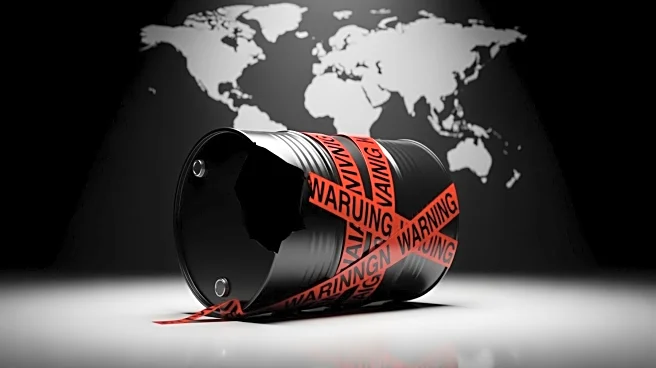What's Happening?
The United States has announced new sanctions targeting Russia's largest oil companies, Rosneft and Lukoil, in response to the ongoing conflict in Ukraine. This decision follows the indefinite shelving
of a planned meeting between President Trump and President Putin in Budapest. The sanctions aim to pressure Moscow into negotiating a peace deal, as previous diplomatic efforts have failed to yield results. The move marks a significant shift in Trump's foreign policy, as he had previously refrained from imposing sanctions to maintain neutrality. The sanctions are expected to have minimal economic impact on Russia, which has claimed immunity to such measures.
Why It's Important?
The sanctions represent a strategic effort by the U.S. to influence Russia's actions in Ukraine by targeting its economic interests. Oil and gas are crucial exports for Russia, and the sanctions could potentially disrupt its revenue streams. This development may affect global oil markets and international relations, as countries like China and India are major consumers of Russian oil. The sanctions also align with Ukraine's calls for increased pressure on Russia, potentially strengthening U.S.-Ukraine relations and impacting the geopolitical landscape.
What's Next?
The U.S. may continue to explore additional measures to pressure Russia, including diplomatic efforts with European allies. The effectiveness of the sanctions will depend on international cooperation and Russia's response. The situation remains dynamic, with potential for further escalation or diplomatic breakthroughs. The U.S. may also reassess its military support to Ukraine, as President Trump has withheld certain weaponry requests from Ukrainian President Zelensky.









